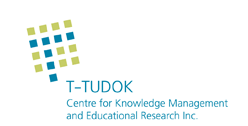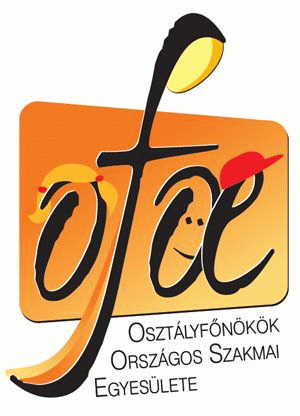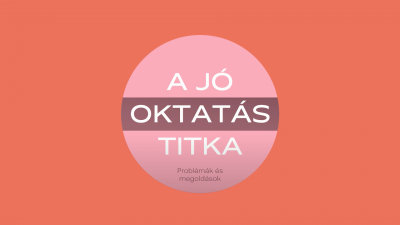National report on Hungarian results in the OECD Programme for the Assessment of Adult Skills and Competencies (PIAAC) (2021)
Hungary participated in the Programme for the Assessment of Adult Skills and Competencies (PIAAC) for the first time. PIAAC is a large-sample international comparative survey implemented under the professional leadership and coordination of the OECD, in which the adult population of the participating countries between the ages of 16 and 65 uses basic competencies in everyday life and at work. Thus, the survey examines adults’ reading comprehension, numeracy, and problem-solving skills, the latter in a computer environment. The measurement started in 2008, and Hungary joined the third wave of the survey in 2016. The survey was implemented in Hungary under the leadership of the National Vocational and Adult Education Office (NSZFH) in collaboration with the Ministry of Finance and the Central Statistical Office within a consortium framework – under the auspices of the GINOP-6.2.1-VEKOP-15-2015-00001 project – with the professional and policy support of the ITM.
A total of 38 countries participated in the three waves of PIAAC (including the United States twice), during which the skills and competencies of 245 thousand people were assessed worldwide. In 2019, the OECD published the latest international results, including a brief description of the Hungarian results. To better understand the results and place them in a domestic context, T-Tudok prepared a domestic report presenting the domestic results in more detail at the request of the NSZFH. In addition to the comprehensive domestic report, two problem-specific analyses were also prepared, which specifically analysed the results of Hungarian adults in more depth. One is from the education perspective, prepared by Júlia Varga, scientific advisor at the Institute of Economics. While the other, conducted by the staff of the Budapest Institute, examines the domestic results from a labour market perspective.
Report on human resource scarcity in Hungarian public education 2021
On behalf of the Representation of the European Commission in Hungary, T-TUDOK surveyed the teacher supply of Hungarian public education. During the research that took place in the first half of 2021, international and domestic literature and the available international and domestic databases (TALIS, PIAAC KIRstat, wage tariff survey, national competence measurement, DPR) were thoroughly analysed. In addition, we conducted an online questionnaire survey among students in teacher education, educators and heads of institutions, as well as we made several interviews and focus group discussions among educators, school heads and other experts. Since the primary goal of the research was to explore the supply and demand of teachers in Hungary, the research also covered the issue of workload and salary of educators working in Hungarian public education to explore factors that can help the efficient use of labour force in Hungarian education.
A executive summary of the research can be found here.
Investing in Children's Services, Improving Outcomes
ESN 3-year project ‘Investing in Children’s services, improving outcomes’ came to an end with the publication of a study, which is the outcome of 3 years of work with child welfare agencies, children’s services directors and providers across 14 European countries (Belgium, Bulgaria, France, Germany, Hungary, Ireland, Italy, the Netherlands, Poland, Portugal, Romania, Spain, Sweden and the United Kingdom). Together, we have worked on assessing how the principles of the European Commission’s Recommendation ‘Investing in children: breaking the cycle of disadvantage’ (are implemented in practice, specifically those on quality services.
Lannert Judit of T-Tudok Inc. was one of the two Hungarian experts contributing to the report.
Parenting support in Europe (2012)
Eurofound Report on Parenting Support in Europe 2012 May
Much of the debate about work–life balance and the well-being of children has focused on issues such as childcare services, flexible work arrangements and child allowances. While the influence of parenting on the well-being and future opportunities of children is widely acknowledged, it is only recently that parenting support and education have come to be viewed as a social investment that contributes towards reducing parental stress and helping parents to manage work and family commitments successfully. Good parenting skills have a highly positive impact on the physical, emotional and intellectual development of children
How the world?s most improved school systems keep getting better
The second McKinsey report was published in November 2010
Wings and Weights
In Nov 2008 the President of Hungary, László Sólyom convened the so called "Committee of The Wise". The members of the committee were all internationally recognized and experienced experts and their mission was to give proposals for the development of the education system, and the combat of corruption.
The committe published its report in Jan 2010. The English version of the report is available here.
Green Book for the Renewal of Public Education in Hungary
From 2007 Judit Lannert was an expert member of the Round Table for Education and Child Opportunities. The Green Book summarizing the work of the round table was published in 2009 and available in English here.
How the best performing school systems come out on the top?
The McKinsey&Companys report was published in September 2007
The reports executive summary:
Education reform is top of the agenda of almost every country in the world. Yet despite massive increases in spending (last year, the worlds governments spent $2 trillion on education) and ambitious attempts at reform, the performance of many school systems has
barely improved in decades. This is all the more surprising because there are wide variations in the quality of education. For instance, in international assessments, less than one percent of African and Middle Eastern children perform at or above the Singaporean average. Nor is this solely the result of the level of investment. Singapore, one of the worlds top performers, spends lesson primary education than do 27 of the 30 countries in the OECD. Changing what happens in the hearts and minds of millions of children. The main charge of any school system is no simple task. That some do so successfully while others do not is indisputable. So why is it that some school systems consistently perform better and improve faster than others?








